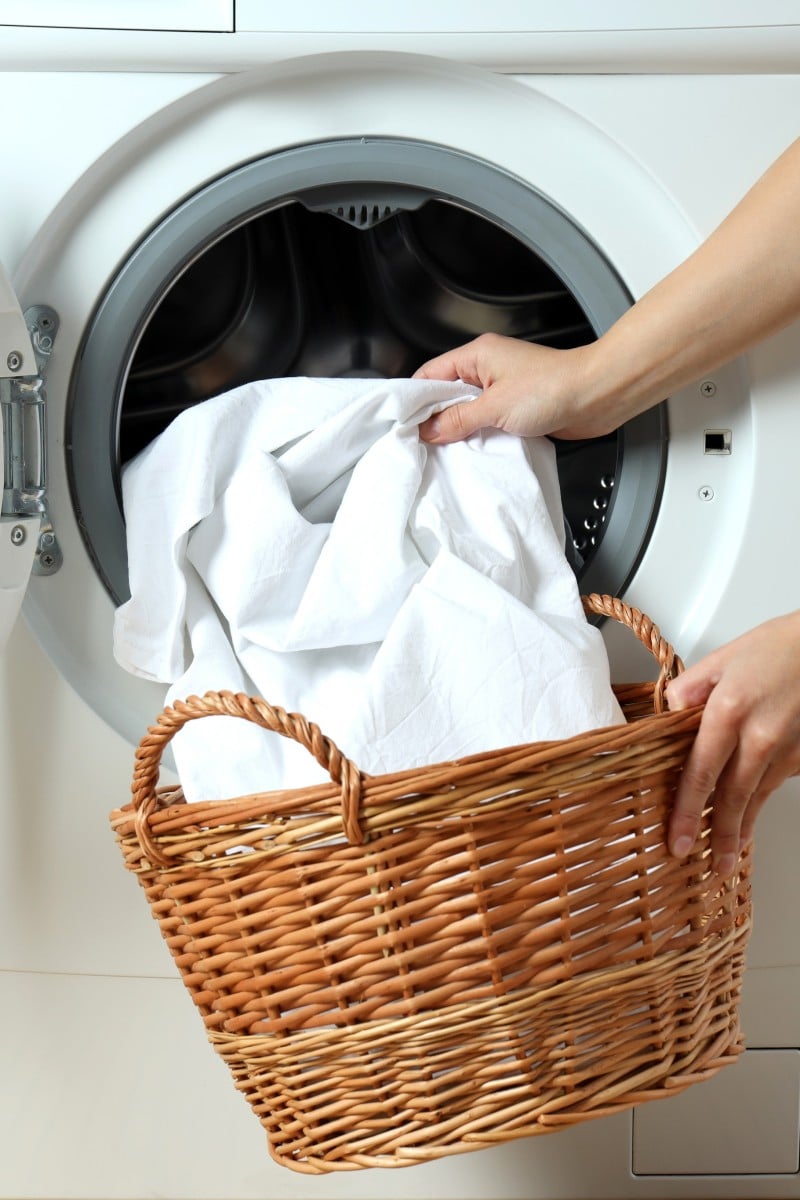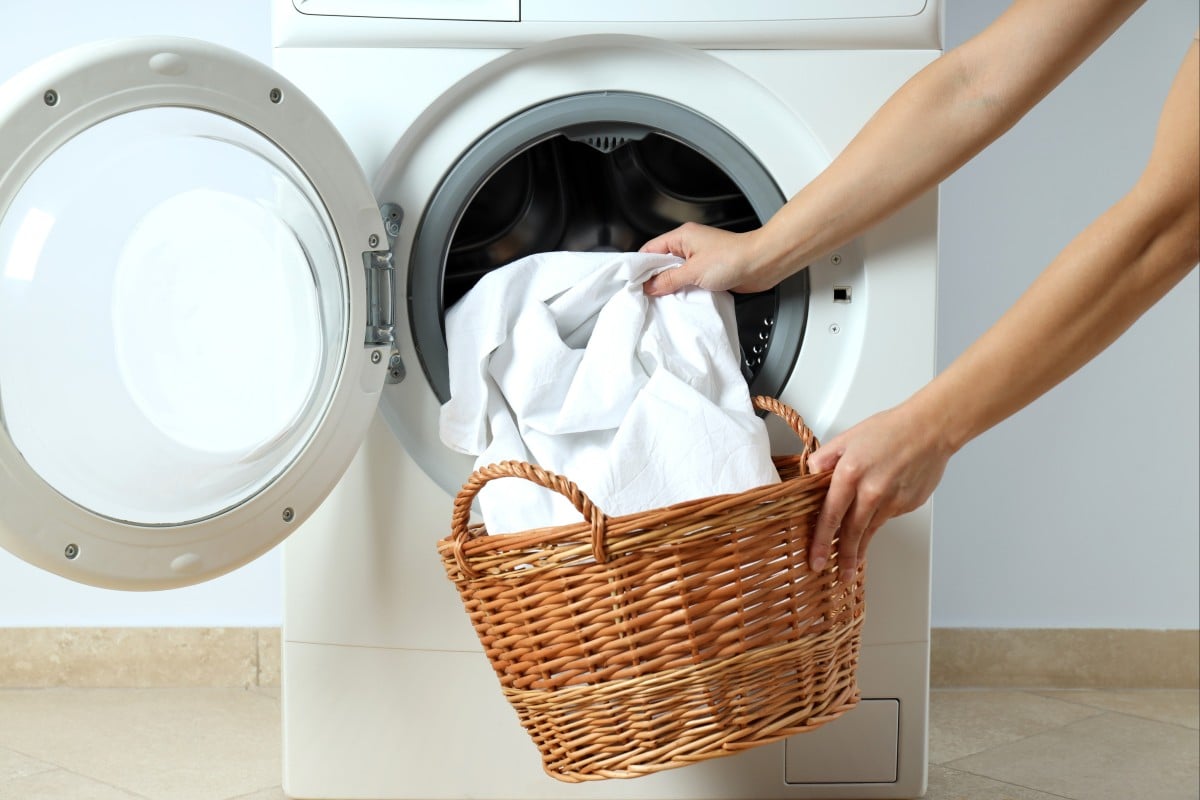
Listen Up: Discover why your pillow case could be dirtier than a toilet seat
Practise your English with our short listening exercises: play the audio, answer the questions, and check the answers at the bottom of the page
 It is important to wash your sheets weekly to avoid bacteria build-up. Photo: Shutterstock
It is important to wash your sheets weekly to avoid bacteria build-up. Photo: Shutterstock Questions
1. How many more bacteria did the study mentioned in the podcast find on a week-old pillowcase compared to a toilet seat?
A. 170 times
B. 1,170 times
C. 7,100 times
D. 17,000 times
2. What do dust mites eat?
A. dirt
B. skin cells
C. mould
D. hair
3. Which of the following can replace “for good” in the podcast?
A. forever
B. later
C. never
D. shortly
4. What common mistake do people make when washing bedsheets, as discussed in the podcast?
A. using too much soap
B. putting too many things in the machine
C. not using enough water
D. putting coloured sheets with non-coloured ones
5. What could happen if you use high heat to dry your sheets?
A. They can expand.
B. They can become dull.
C. They can get smaller.
D. none of the above
6. If you “stick with” a way of doing something, you …
A. do it sometimes.
B. do it all the time.
C. do it only once.
D. avoid doing it.
7. What does the podcast suggest wearing to bed to sleep?
A. pyjamas
B. sportswear
C. tight clothes
D. nothing
8. What is an example of a breathable fabric, according to the podcast?
A. silk
B. fleece
C. linen
D. bamboo
9. Why is it a good idea to take a shower before going to bed?
A. It cools you down more quickly if your bedsheets are warm.
B. It minimises the wrinkles and smells on the bedsheets.
C. It keeps your body’s oil and sweat away from the bedsheets
D. none of the above
10. According to the podcast, what are the best materials for bedding?
A. Those that do not trap dust.
B. Those that do not absorb sweat.
C. Those that are natural and strong.
D. Those that are easy to iron.
11. Complete the summary using information from the podcast. (5 marks)
It is important to change and wash your (i) ______ and pillow covers at least (ii) ______ time every week. If you sweat a lot or have allergies, it is advised to do this every three or four (iii) ______. (iv) ______ should be changed at least every two years, or when they start to lose their shape. Duvets and comforters need to be replaced every five to 10 (v) ______, depending on how good they are and how much you use them.
Answers
1. D
2. B
3. A
4. B
5. C
6. B
7. A
8. D
9. C
10. C
11. (i) bedsheets; (ii) one; (iii) days; (iv) pillows; (v) years
Script
Adapted from Tribune News Service
Voice 1: If you can’t remember the last time you washed your sheets, it might be time for a refresh. No matter how Instagrammable your bedroom set-up is, nothing kills the vibe like bacterial build-up. A study from mattress company Amerisleep found that pillowcases left unwashed for just a week can carry 17,000 times more bacteria than a toilet seat.
Voice 2: And that’s not just gross – it could mess with your health. According to allergist and immunologist Dr Purvi Parikh, bedsheets can accumulate dirt, mould, dust mites and skin cells, which dust mites feed off. This can cause allergies, asthma, skin infections and acne.
Voice 1: Here are some tips on cleaning and caring for your bedsheets, and when to say goodbye to them for good. You should change and wash your sheets and pillowcases at least once a week. If you sweat heavily or suffer from allergies, it is a good idea to do so every three to four days. Have a furry friend who sleeps in bed with you? You’ll want to wash your sheets even more often to keep pet dander, hair and bacteria in check.
Voice 2: One of the biggest mistakes people make is stuffing too much into the washer. People love to cram everything into one load, but when the washer’s overloaded, the sheets are not actually getting clean. And while you might be tempted to blast them on high heat to speed things up, this can weaken the fibres and shrink the sheets. You should stick with a low tumble dry for best results.
Voice 1: What you wear to bed also makes a difference to your sheets. Pyjamas absorb oils and sweat, acting as a barrier between your body and your bedding. If you sleep in the nude, your sheets will get dirty a lot faster. And if you sweat a lot in your sleep, consider getting breathable fabrics like cotton or bamboo. Another easy habit is to hop in the shower before you crawl into bed. It helps reduce oil and sweat transfer and keeps your bedding fresher for longer.
Voice 2: If your bedding’s looking a little tired, it might be time for an upgrade. Experts recommend sticking with natural, durable fabrics such as cotton and linen. They are both long-lasting and get softer over time. And just in case you’re wondering, yes, your bedding has an expiration date. Depending on quality and use, duvets and comforters should be replaced every five to 10 years. You should also replace it sooner if it is lumpy, flat, or has an odour that won’t go away. Pillows, on the other hand, should be swapped out every one to two years, or when they start losing their shape.